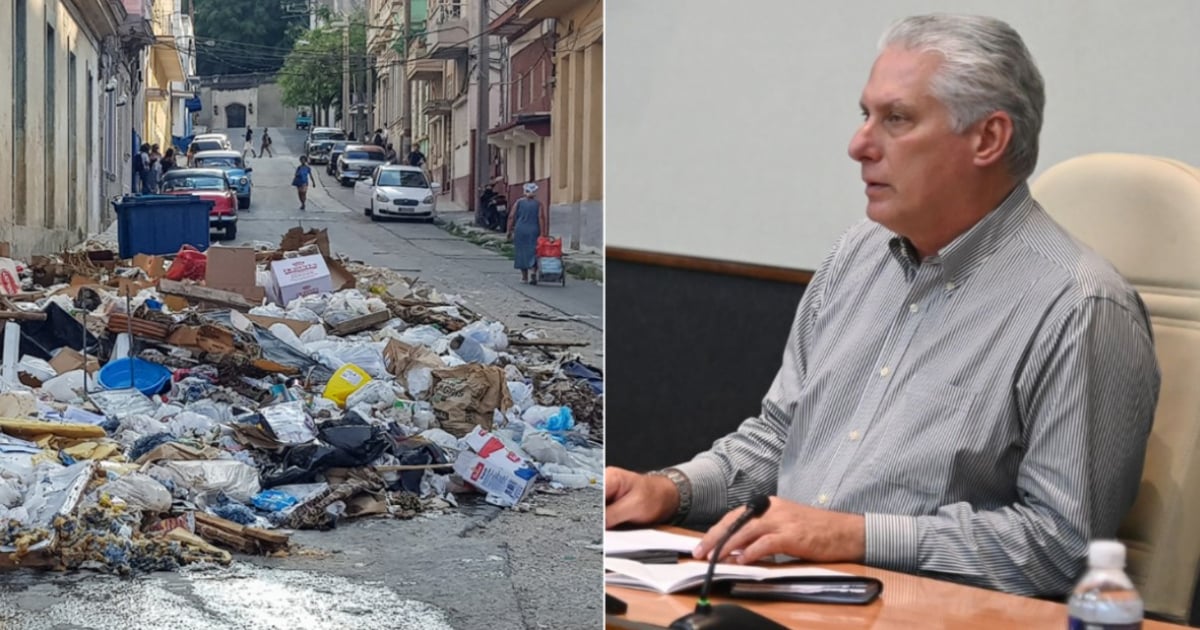
With the recent memory of the damage and deaths caused by Hurricane Oscar in Guantánamo still fresh, and in light of the impending arrival of Tropical Storm Rafael, which is expected to make landfall in Cuba as a cyclone, leader Miguel Díaz-Canel assured on Tuesday that the country is "prepared and organized" to face this new threat, a statement that contrasts sharply with the harsh reality of governmental management during the recent crisis.
Díaz-Canel stated, through the official account of the presidency of Cuba on the social media platform X, during the meeting to review actions to mitigate the effects of Hurricane Rafael, that the phases to address the cyclone have been prepared in advance, emphasizing the country's "experience" in managing natural disasters.
According to the president, the priority is to minimize the damage and then proceed with recovery, an approach that has recently faced criticism for the lack of effectiveness and efficiency in addressing the most affected and vulnerable areas.
However, during the meeting, the leader acknowledged that, following the impact of Rafael in Cuba, recovery efforts will take place “regardless of the complex situation we are experiencing in the country,” suggesting that repairing the damages could take longer than usual.
Similarly, Díaz-Canel emphasized the importance of taking all necessary measures to protect the population and safeguard their property, preparing evacuation centers, and ensuring that generators are ready at the most vulnerable locations.
He also emphasized the need to prioritize face-to-face communication in the communities, due to the ongoing blackouts experienced by Cubans. He highlighted that in the midst of power outages and technological difficulties, this type of direct contact is essential to ensure that information reaches all citizens effectively, in order to avoid repeating the mistakes made in Guantánamo during the impact of Hurricane Oscar.
The leader instructed to expedite the delivery of fuel, evaluate resources, and have teams ready for the restoration of services such as electricity, communications, and water, as recovery efforts continue in Guantánamo.
It also emphasized the need to advance harvests, implement protective measures in coastal areas, and secure lightweight coverings to minimize damage, with particular attention to vulnerable families.
The statements made by President Díaz-Canel contrast with the reality faced by Cubans, who have flooded social media with criticisms of the regime for its slow response to Rafael's imminent passage through the western part of the island.
Moisés Leandro stated on the social media platform X that, although the authorities have advised collecting water for the cyclone, they have not supplied it in the upper part of Cabañas, Mariel, for more than 20 days.
"The sack of coal costs 1,200 pesos and the water pipe 3,000; it's all just an image and lies to deceive foreigners and fools," he expressed in his critique of the management of the situation.
For his part, Frank Pérez commented on X: “Yes, prepared, like in Baracoa, where they left people helpless and without the necessary information.”
Also on X, Will González pointed out: “Oh yes, leaving thousands without a roof, without recovering the majority of the things they have lost, and still in shelters.”
What do you think?
COMMENTFiled under: